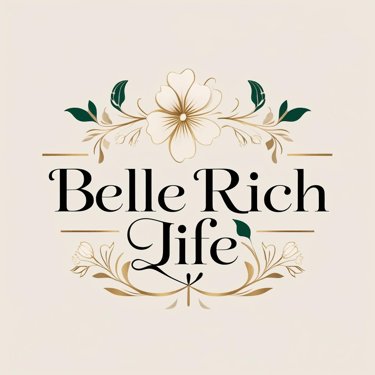Luxury Perfumes & Fragrance Guide for the Elegant Woman
At Belle Rich Life, perfume isn’t just a finishing touch — it’s a signature, a mood, and a statement. We believe fragrance is a form of personal luxury that enhances your presence and uplifts your confidence. Whether you prefer floral, woody, citrus, or oriental scents, choosing the right perfume is an art — and part of a deeper self-care ritual.
On this page, you’ll find expert fragrance insights, scent layering tips, and product recommendations designed to help you discover and wear perfume like an effortless luxury. I personally review each fragrance for longevity, sillage, and mood, and share tips on how to style scents for different occasions — from a busy day in the city to an elegant evening event.
The Allure of Perfumes: A Journey Through History, Luxury, and Cultural Influence
Few creations capture human artistry and sensory experience quite like luxury perfumes and fragrances. More than just scent, they have become powerful cultural symbols, personal signatures, and status markers that define elegance across generations. From the sacred incense of ancient temples to the meticulously crafted bottles displayed on modern vanities, fragrances tell the story of civilization's deep connection with scent. This journey explores how perfumes have evolved through millennia, influenced global economies, and continue to captivate both our senses and our imagination.
Historical Evolution: From Sacred Rituals to Personal Luxury
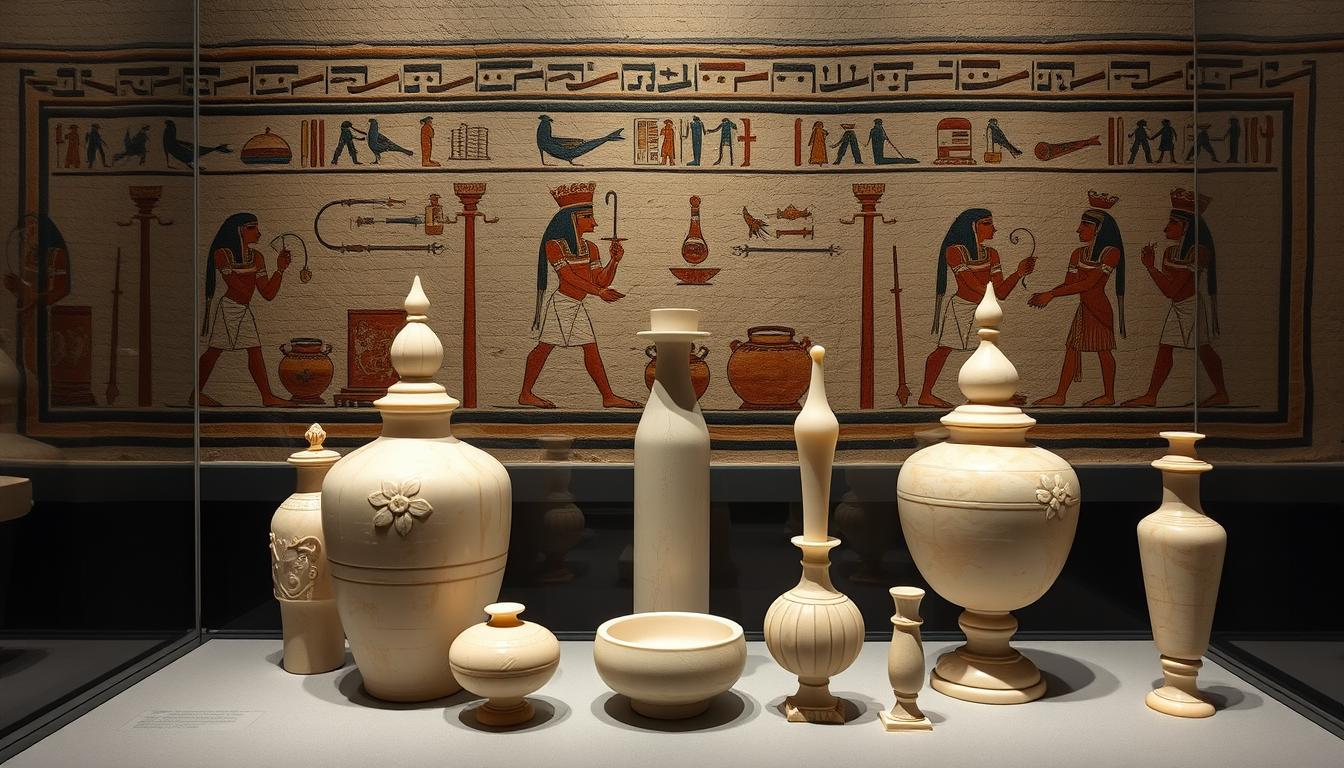

Ancient Egyptian perfume vessels and wall paintings depicting perfume preparation rituals (circa 1500 BCE)
The story of perfume begins over 5,000 years ago in Mesopotamia, where aromatic resins were burned as offerings to the gods. Archaeological evidence reveals that by 3000 BCE, Egyptians had developed sophisticated perfumery techniques, creating scented oils for religious ceremonies, embalming, and personal adornment. Perfume was so valued in ancient Egypt that King Tutankhamun was buried with alabaster jars of fragrance that retained their scent for over 3,000 years.
The ancient Greeks and Romans further refined perfumery, with fragrance becoming an essential part of bathing rituals and social life. The term "perfume" itself derives from the Latin "per fumum," meaning "through smoke," reflecting the early methods of scent diffusion through burning aromatic materials.
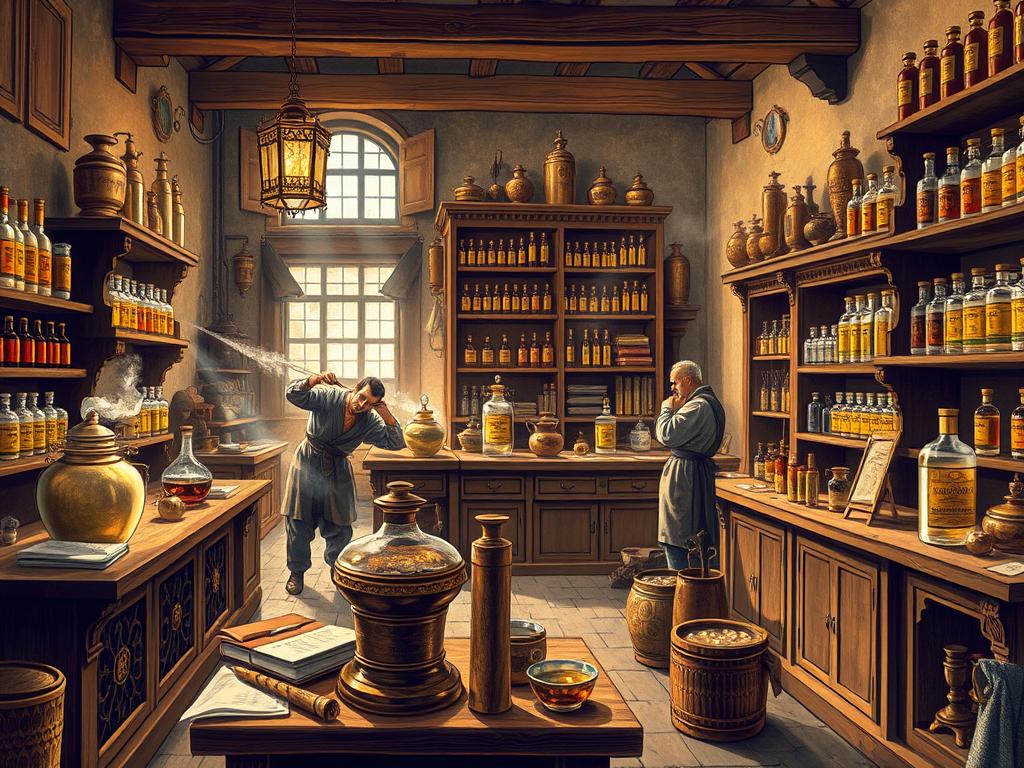

Renaissance perfume workshop in Florence, Italy (16th century illustration)
The Renaissance period marked a pivotal evolution in perfumery, particularly in Italy and France. Catherine de Medici's arrival in France in the 16th century, accompanied by her personal perfumer, helped establish France as a perfume powerhouse. The town of Grasse, originally a leather tanning center, transformed into the world's perfume capital when glove makers began scenting their products to mask the unpleasant smell of the tanning process.
The 20th century witnessed the industrialization of perfumery, with synthetic molecules revolutionizing what was possible in fragrance creation. Iconic scents like Chanel No. 5, launched in 1921, pioneered the use of aldehydes, synthetic compounds that gave perfumes unprecedented lift and complexity. This innovation marked the birth of modern perfumery as we know it today.
Global Production Hubs: The Geography of Fragrance
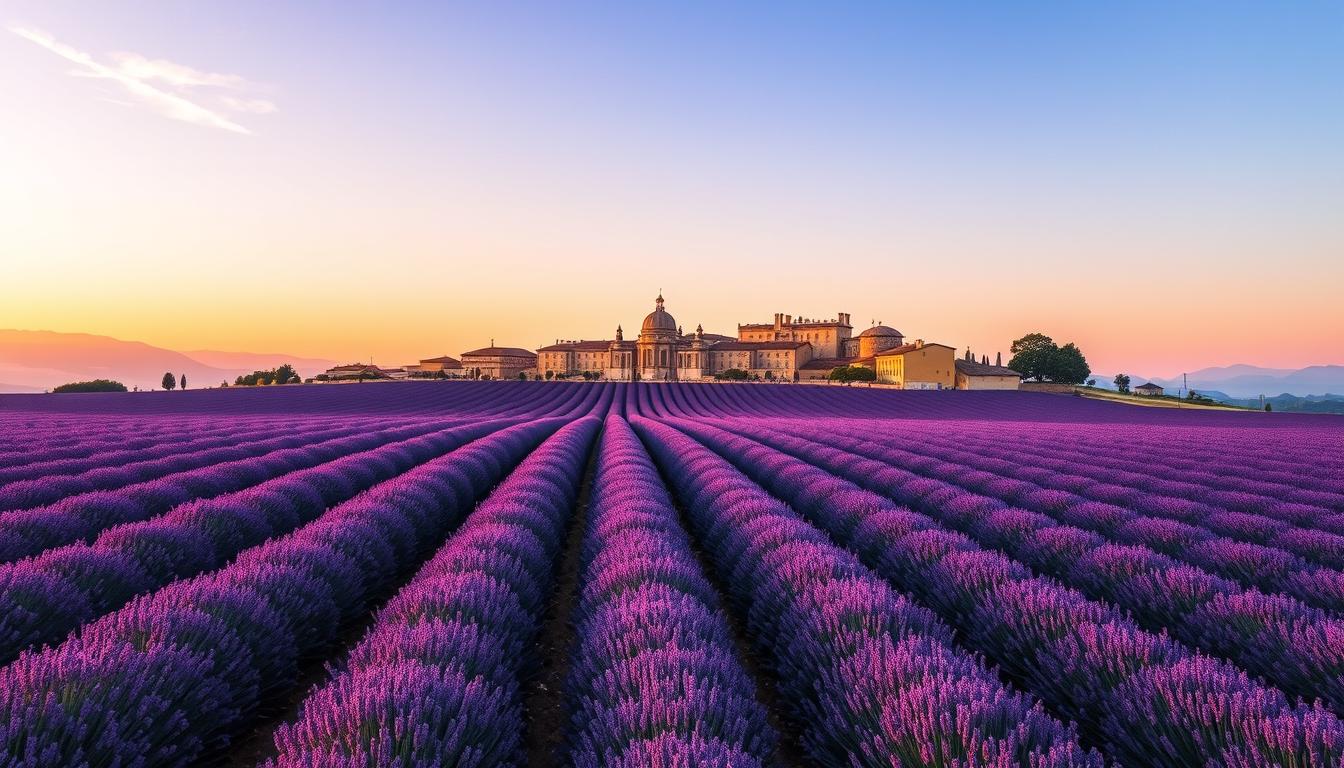

Lavender fields in Grasse, France – the historic capital of perfumery
While fragrance creation has globalized, certain regions maintain distinctive roles in the perfume industry. France remains the undisputed leader, with Grasse recognized by UNESCO for its perfumery heritage. The region's unique microclimate creates ideal conditions for growing jasmine, rose, and lavender – cornerstone ingredients in fine fragrances. French perfume houses account for approximately 30% of the global luxury fragrance market.
Country
France
Italy
Switzerland
UAE
India
Specialty
Luxury fragrances, floral notes
Citrus-based scents, niche fragrances
Fragrance compounds, R&D
Oud-based fragrances, attars
Essential oils, natural ingredients
Market Share (%)
30%
12%
15%
8%
7%
Notable Contribution
Fine perfume tradition, perfume training
Bergamot production, artisanal techniques
Innovation in synthetic molecules
Revival of traditional Arabian perfumery
Jasmine, sandalwood, and spice production
Italy has established itself as a center for citrus-based fragrances, leveraging its abundant bergamot production in Calabria. Swiss companies lead in fragrance compound development, with giants like Givaudan and Firmenich pioneering new synthetic molecules that expand creative possibilities. The United Arab Emirates has emerged as a powerhouse in oud-based luxury fragrances, revitalizing traditional Arabian perfumery for global markets.
Emerging markets in Brazil, Indonesia, and China are rapidly developing their fragrance industries, often focusing on locally sourced ingredients and cultural scent preferences. This globalization has expanded the palette of available scents while creating economic opportunities in agricultural regions specializing in aromatic crops.
Gender Dynamics: Evolving Identities in Fragrance
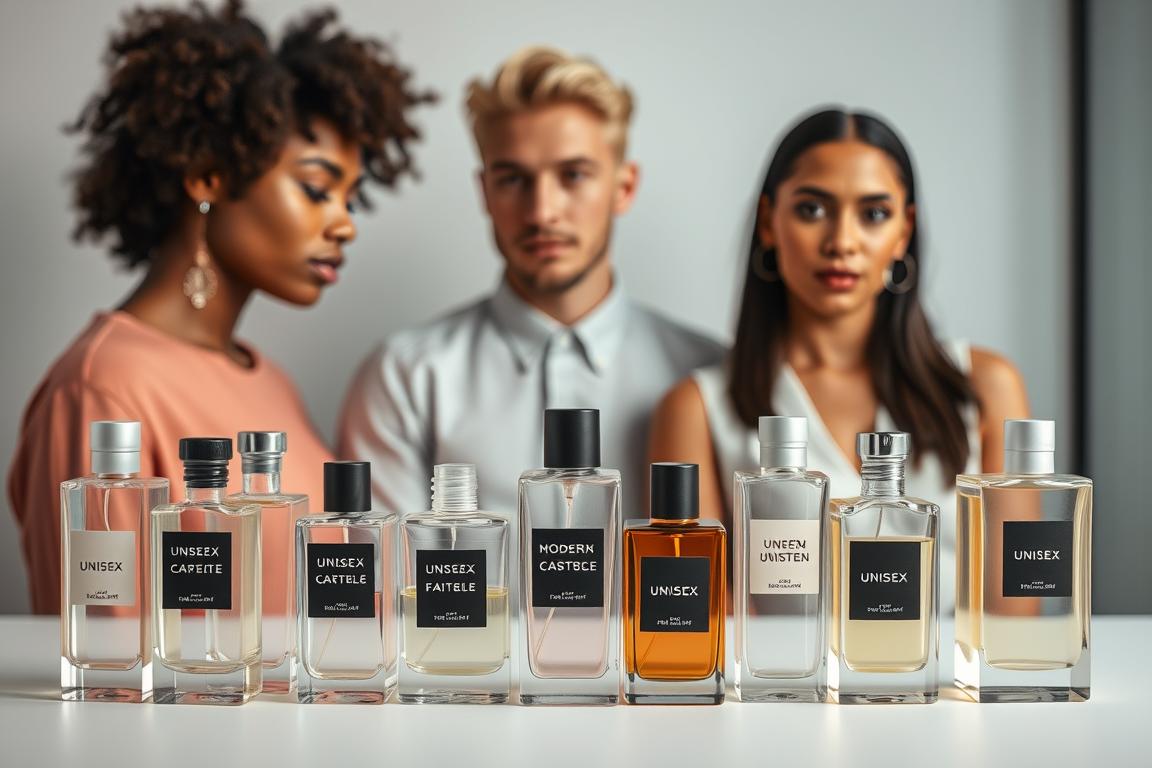

Modern unisex fragrance display reflecting the evolving gender dynamics in perfumery
Historically, fragrance has maintained a complex relationship with gender identity. In ancient civilizations, scented oils were used by all genders, with little distinction between "masculine" and "feminine" scents. The strict gendering of fragrances is largely a 20th-century marketing phenomenon that created distinct olfactory territories for men and women.
Women's fragrances traditionally emphasized floral and sweet notes, reflecting societal expectations of femininity. According to Euromonitor International, women's fragrances still account for approximately 60% of global perfume sales, though this percentage has been gradually decreasing as gender norms evolve.
"The future of fragrance is genderless. Modern consumers increasingly select scents based on emotional connection rather than gender marketing."
— Linda Levy, President of The Fragrance Foundation
The contemporary fragrance landscape is witnessing a significant shift toward unisex and gender-neutral offerings. Brands like Le Labo, Byredo, and Escentric Molecules have built their identities around scents that transcend traditional gender categories. According to NPD Group, sales of unisex fragrances grew by 17% in 2022, outpacing both men's and women's categories.
This evolution reflects broader cultural shifts in gender expression and identity. Modern consumers increasingly view fragrance as a form of self-expression rather than a gender signifier, choosing scents based on personal preference and emotional resonance rather than marketing categorizations.
Brand Psychology: The Power of Names and Stories
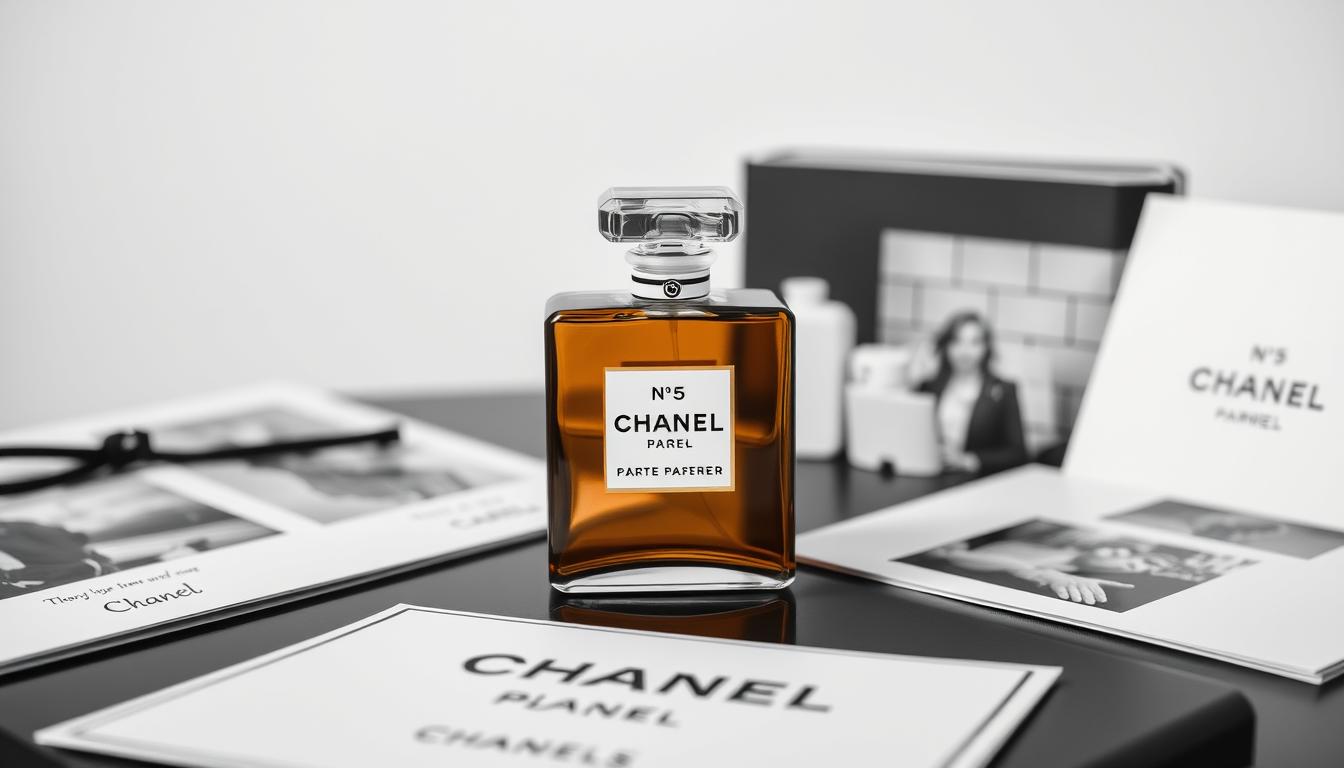

The iconic Chanel No. 5 – a masterclass in luxury fragrance branding
Few products demonstrate the power of branding as clearly as perfume. A fragrance's name, bottle design, and associated narrative significantly influence consumer perception and experience. The psychology behind successful fragrance brands reveals how sensory experiences become intertwined with identity and aspiration.
Consider Chanel No. 5, perhaps the most famous perfume in history. Its minimalist name and bottle design, revolutionary at the time of its 1921 launch, communicated modernist sophistication. Coco Chanel's decision to name it simply "No. 5" (from the fifth sample presented to her) created an aura of exclusivity and insider knowledge that persists a century later.
Evocative Naming Strategies
Emotional states: Joy (Dior), Obsession (Calvin Klein)
Forbidden allure: Opium (YSL), Poison (Dior)
Exotic locations: Shalimar (Guerlain), Baccarat Rouge 540 (Maison Francis Kurkdjian)
Luxury materials: Satin (Burberry), Gold (Amouage)
Psychological Impact
Status signaling: Recognizable luxury bottles as social markers
Identity reinforcement: Scents that align with self-perception
Memory association: Fragrances linked to significant life moments
Aspirational connection: Scents that represent desired lifestyle
Dior's Sauvage demonstrates modern fragrance branding excellence. Its name evokes untamed masculinity, while its marketing campaign featuring Johnny Depp in desert landscapes creates a narrative of authentic ruggedness. This coherent storytelling helped make Sauvage the world's best-selling men's fragrance, with annual sales exceeding $1 billion.
Research from the Journal of Marketing shows that consumers often experience the same fragrance differently based solely on its branding elements. In blind tests, participants rated identical scents significantly higher when told they were luxury brands versus mass-market alternatives, highlighting how brand perception shapes sensory experience.
Celebrity Influence: Star Power in Scent
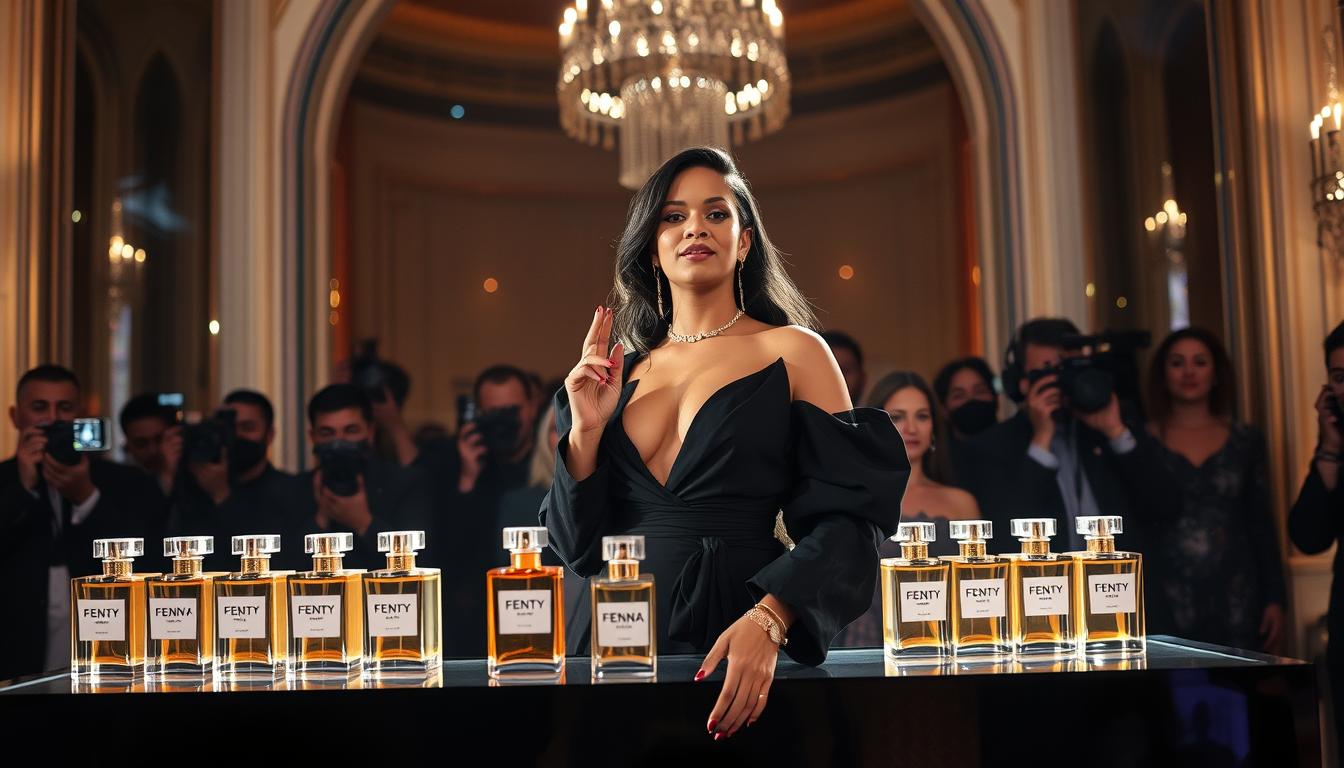

Rihanna presenting her Fenty perfume line at a luxury launch event
Celebrity fragrances represent one of the most successful intersections of entertainment and beauty industries. Since Elizabeth Taylor pioneered the modern celebrity fragrance with "White Diamonds" in 1991 (which has generated over $1.5 billion in revenue), stars have leveraged their personal brands to create lucrative scent empires.
The celebrity fragrance market experienced explosive growth in the early 2000s, with stars from Jennifer Lopez to Britney Spears launching successful lines. While the category experienced a decline as niche fragrances gained popularity, recent years have seen a renaissance with more sophisticated celebrity offerings.
Celebrity
Rihanna
Ariana Grande
Billie Eilish
Tom Ford
Fragrance
Fenty Eau de Parfum
Cloud
Eilish
Fucking Fabulous
Launch Year
2021
2018
2021
2017
Annual Revenue
$140 million
$93 million
$60 million
$85 million
Key Success Factor
Luxury positioning, gender-neutral appeal
TilTok virality, accessible price point
Distinctive bottle design, vegan formulation
Provocative naming, designer credibility
Rihanna's Fenty Eau de Parfum exemplifies the new celebrity fragrance approach, emphasizing quality, artistic vision, and personal connection rather than mere endorsement. The fragrance sold out within hours of its initial release, demonstrating the power of authentic celebrity involvement in product development.
Beyond direct sales, celebrity fragrances serve as accessible entry points to star-associated lifestyles. For many consumers, owning Ariana Grande's "Cloud" provides an attainable connection to the star's aesthetic universe. This emotional connection drives remarkable loyalty, with celebrity fragrances showing higher repeat purchase rates than comparable non-celebrity scents.
Luxury Market Analysis: The Business of Exclusivity
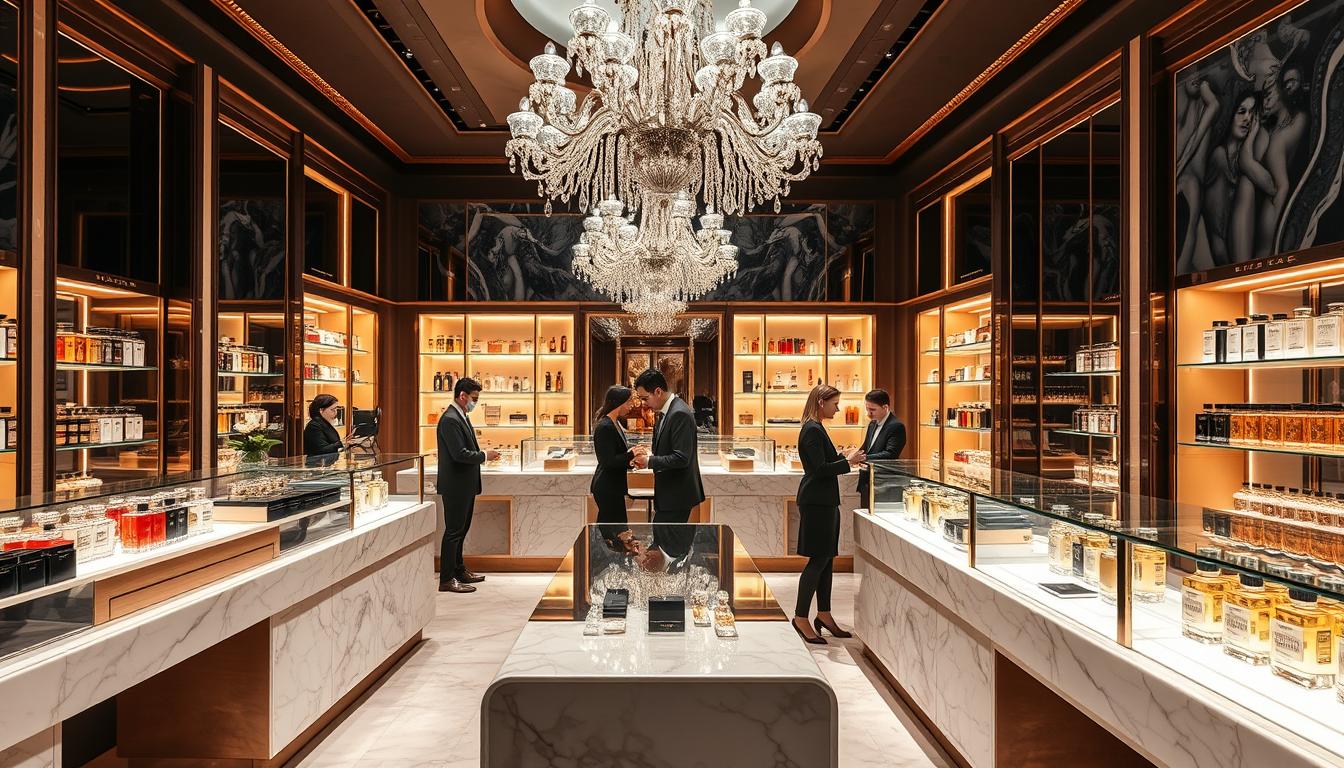

Interior of a luxury perfume boutique showcasing high-end fragrance collections
The global fragrance market reached $50.8 billion in 2022 and is projected to grow at a CAGR of 5.9% through 2030, according to Grand View Research. Luxury fragrances, defined as those priced above $100 per 50ml, represent approximately 35% of this market by value despite accounting for only 15% of volume sales.
The luxury fragrance segment has demonstrated remarkable resilience, even during economic downturns. During the 2020 pandemic, while the overall beauty industry contracted, niche and luxury fragrances experienced only a modest decline before rebounding strongly in 2021 with 42% year-over-year growth. your text here...
Luxury Fragrance Market Growth Factors
Exclusively & Limited Editions. 9.5/10
Ingredient Quality & Sourcing. 9.0/10
Heritage & Storytelling. 8.5/10
Artistic Collaboration. 8.0/10
Sustainable Practices. 7.5/10
Exclusivity remains a cornerstone of luxury fragrance marketing. Houses like Frédéric Malle and Byredo have built their reputations on limited distribution and artisanal production methods. Limited editions and collector bottles create urgency and desirability, with releases like Guerlain's annual Bee Bottle often selling out despite price points exceeding $10,000.
The rise of niche fragrance houses has transformed the luxury landscape. Brands like Le Labo, Maison Francis Kurkdjian, and Creed have captured significant market share by emphasizing artisanal quality, unique compositions, and personalized experiences. This trend has prompted luxury conglomerates to acquire promising niche brands, as seen in LVMH's acquisition of Maison Francis Kurkdjian and Estée Lauder's purchase of By Kilian.
Economic Impact: The Fragrance Industry's Global Footprint
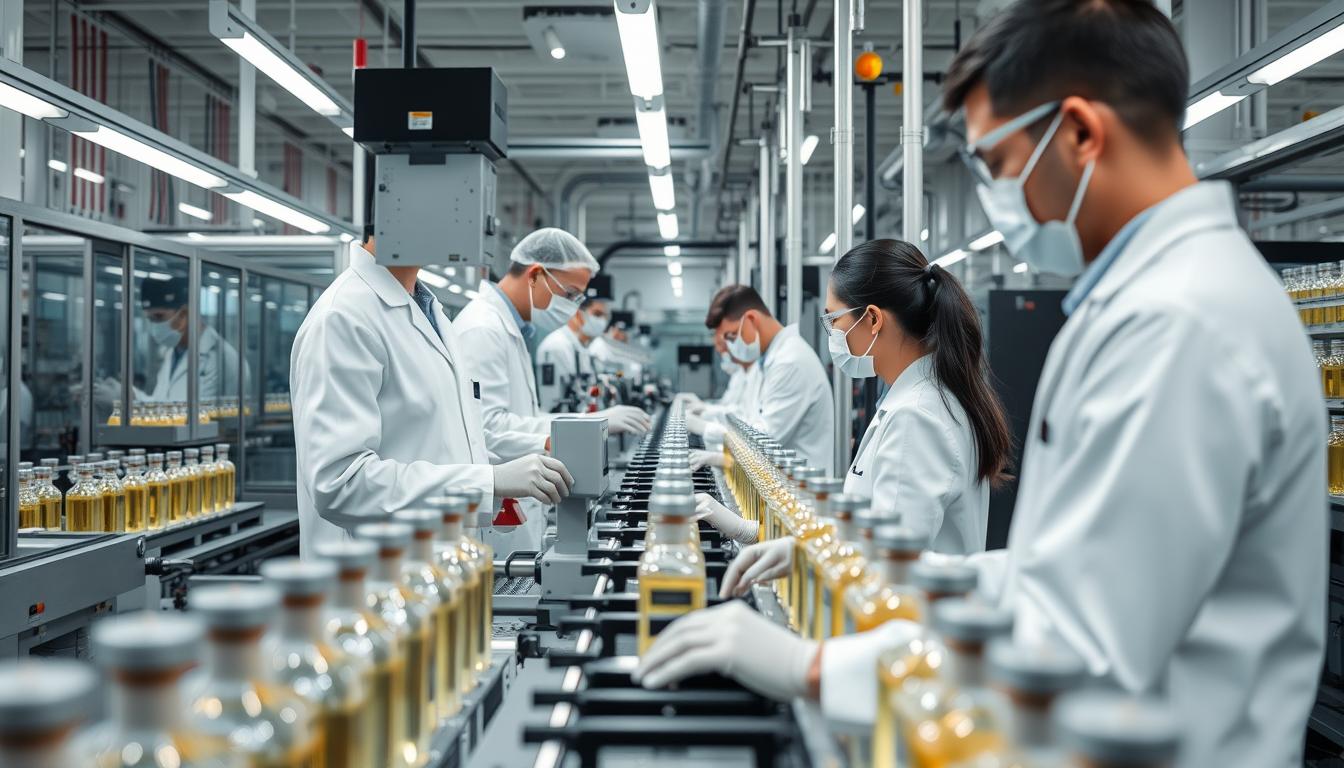

Modern perfume manufacturing facility combining traditional expertise with advanced technology
The fragrance industry generates significant economic value beyond direct sales. In France alone, perfumery contributes approximately €7.6 billion to the national economy and supports over 130,000 jobs across the value chain, according to the French Federation of Beauty Companies (FEBEA).
Agricultural communities in regions specializing in perfume ingredients benefit substantially from the industry. In Grasse, France, perfume flower cultivation provides livelihoods for thousands of farmers, with jasmine harvests alone generating approximately €3.4 million annually. Similar economic impacts are seen in Bulgaria's Rose Valley, Indonesia's patchouli-growing regions, and Haiti's vetiver production areas.
Employment Impact
Direct manufacturing: 290,000 jobs worldwide
Agricultural production: 375,000 jobs in ingredient farming
Retail distribution: 420,000 jobs in specialized sales
Creative sector: 15,000 jobs in perfume development
Economic Multiplier Effects
Tourism: Perfume museums and factory tours
Education: Specialized training and schools
Research: Innovation in chemistry and botany
Luxury retail: Anchor stores in shopping district
The fragrance industry also drives innovation in adjacent sectors. Advances in extraction technologies developed for perfumery have applications in pharmaceuticals, food science, and environmental monitoring. Similarly, packaging innovations originally created for luxury fragrances often influence design trends across consumer goods categories.
Sustainability initiatives are increasingly shaping the industry's economic model. Major fragrance houses are investing in regenerative agriculture programs that support biodiversity while securing supply chains. Givaudan's Sourcing4Good program and IFF's Responsible Sourcing initiative represent significant commitments to ethical sourcing that create economic stability in vulnerable agricultural communities.
The Enduring Allure of Fragrance
From ancient temples to modern luxury boutiques, perfumes and fragrances have maintained their power to captivate, communicate, and connect. They represent a unique intersection of art and science, tradition and innovation, personal expression and cultural identity. As the industry continues to evolve, embracing sustainability, inclusivity, and technological advancement, the fundamental appeal of fragrance remains unchanged – its remarkable ability to evoke emotion, memory, and desire through the invisible but profound language of scent.
Whether as cultural artifacts, luxury indulgences, or personal signatures, fragrances continue to weave themselves into the fabric of human experience, enriching our sensory world and connecting us to traditions that span millennia. In an increasingly digital age, the tangible, intimate nature of perfume offers a welcome reminder of our essential humanity and our enduring appreciation for beauty in its most ephemeral form.
Begin Your Fragrance Journey
Explore More of Belle Rich Life
Continue your journey into luxury living with more curated guides from Belle Rich Life. Under Beauty & Skincare, discover expert advice in our Acne Solutions section and in our Skincare section. For Fashion & Style, browse inspiration from Chic Everyday Outfits to Casual Outfits. And if timeless accessories are your passion, explore Jewelry & Watches with our curated Timeless Watches collection. Each section is designed to help you live beautifully, every day.
Home Beauty & Skincare Fashion & Style Jewelry & Watches Luxury Fragrances Home & LifestyleBlogs About Contact
eliel@bellerichlife.com
Contact us
© 2025. All rights reserved
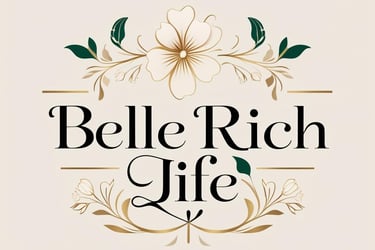

This blog may contain affiliate links, which means I might earn a small commission, at no extra cost to you, if you decide to make a booking through one of these links. I only recommend products and services I actually use or genuinely believe will bring value. For more information visit http://paidforadvertising.com. Thank you for your support!
Affiliate Disclosure
